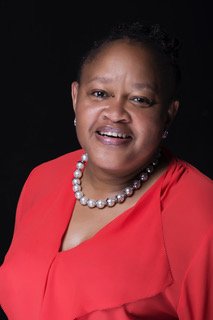by Teboho Seretlo
It is no secret that there is a huge challenge in access to funding generally and specifically for women-owned businesses. In fact, I recently read somewhere that the funding gap globally is $300 billion for funding women-owned businesses. Access to traditional funding remains skewed, with women entrepreneurs receiving a fraction of available capital globally. We therefore need to look at other means, where possible, of funding, especially our start-ups, on our way to building our businesses.
In my line of work, I assist businesses to apply for funding, and in the past few years of doing this, I have almost been discouraged by the process and the number of declines that have come my way. However, I still keep at it because my belief is that, if it was easy then everyone would be doing it. I keep going because I want to be part of the narrative that has contributed to meaningful change in assisting women-owned businesses to access this elusive funding.
Having said that, I do think that as a business, before you say you need funding, and when you approach me to assist, my question is – how do you know that you really need funding? Have you considered other methods of funding other than getting a loan?
I know that most of the time we hear about angel investors, venture capitalists, development financiers and banks. There are also grants available but bear in mind that even with grants, there are requirements that you need to fulfill, some more stringent than others, before the grant application is approved. In South Africa, because of broad-based black economic empowerment legislation, there is also the option of tapping into the enterprise development funds of big corporates.
The process of funding applications can take as long as two years - yes, you heard me correctly, two years. Therefore, if you are mindful of time, then this may not necessarily work for you, and depending on how much you need and what you need it for. So, let us look at what other funding options there are out there such as not-so-formal loans from friends and family, as well as bootstrapping.
Bootstrapping means starting and growing your business using your own savings, personal networks, or revenue from early sales, rather than external funding. It is about doing more with less. For many women across the world, bootstrapping is not just a strategic decision—it is often the only viable route. Furthermore, using revenue from early sales to grow your business organically has its advantages, such as building at the pace your operations, team, and systems can handle and no added pressure from your investors/financiers. Growing organically also helps you to pivot more easily when needed, and it means you stay close to your customers and learn from their evolving needs. We also need to understand that actually, organic growth builds resilience, and for many women entrepreneurs who are juggling multiple responsibilities, that steady sustainability can sometimes matter more than fast business expansion.
Yes, like everything else, bootstrapping has its downside, but personally, I think it can be empowering, and there is pride in that. There is power in knowing that your business exists not because someone wrote you a cheque, but because you showed up, solved a problem, and got paid for it.
Some of the cons of bootstrapping include sacrifice, long hours, and often, slow returns. But it also builds character, business discipline, and independence. You learn how to stretch a rand or a naira; you learn to negotiate, to test before scaling, and to value profit over hype.
So, here are some of the things you need to keep in mind if you want to bootstrap your business.
Start lean. Avoid unnecessary costs. Focus on your core offering.
Build before you scale. Make sure there is demand before spending to grow.
Reinvest profits. Grow with what you earn.
Use free and low-cost tools. From Canva to Google Docs, use what is available to you.
Be patient. Give yourself grace and time.
In conclusion, I would say, own your journey and consider bootstrapping as a realistic and empowering path to long-term success. So, whether you are baking from home, consulting between school runs, or running an e-commerce brand from your phone—remember, you do not need permission to succeed. Your journey is valid and your business can thrive, one sale at a time.
Teboho Seretlo is the managing director and founder of Seretlo Consulting, a business support services consultancy which assists micro, small and medium enterprises with business intelligence support, business plans and investor pitch decks, funding applications, business cost optimization and business improvement processes. She also ran a franchised premium dry-cleaning outlet of her own for 5 years. She holds a BSc (Hons) in Maths from University of Fort Hare, Management Development Programme (MDP) from GIBS and an International Executive Development Programme (IEDP) GIBS & Rotterdam School of Management. She has over 25 years working experience with corporates such as Nedbank, Momentum, The Coca-Cola Company, SABreweries and Unilever, where she gained experience in a variety of disciplines including B-BBEE &transformation, financial management & budgeting, project management, decision-support, business strategy & analysis as well as research. She is passionate about gender issues and does volunteer work for women empowerment organisations.
More articles by Teboho
















